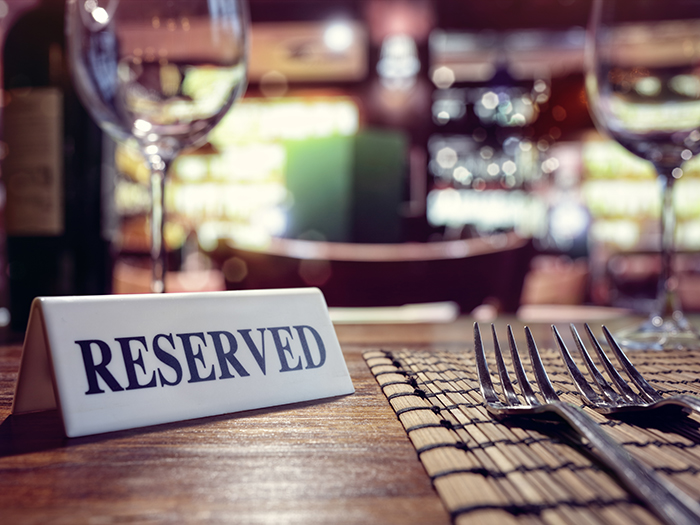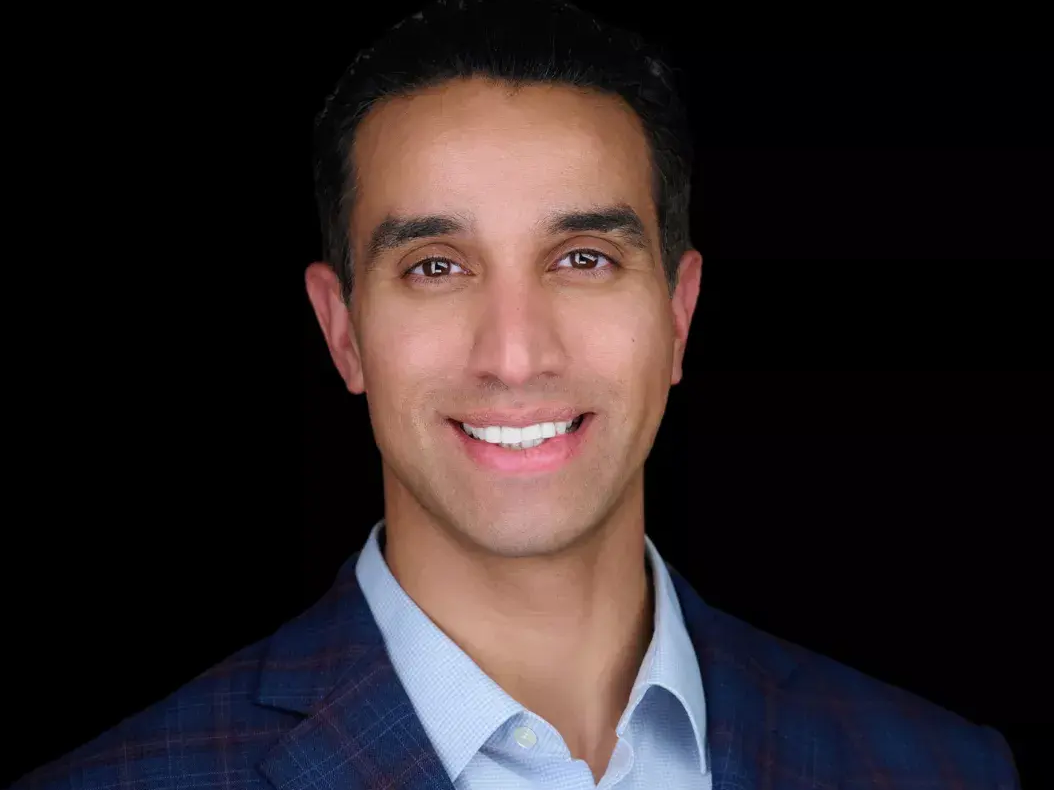Sponsored Content by Engle Martin
4 Growing Liability Exposures Will Make Running a Restaurant Even Harder

Running a restaurant, bar, or hotel has never been easy. Within their first three years, 59 percent of all hospitality facilities fail, according to studies by the University of Denver’s Daniels College of Business. Keeping up with food trends and ever-changing customer preferences present a constant challenge.
And then there are the risks unique to running any hospitality establishment. These facilities must maintain safe, clean and inviting properties, manage an often-transient staff, and mitigate the liabilities associated with serving food and alcohol.
“These have always been risks for the hospitality industry, but recently they are intensifying,” said James Reich, Regional Casualty Claims with Engle Martin & Associates, a national independent loss adjusting and claims management firm.
Thanks to the power of social media which can spread news like wildfire, any unfortunate event, however minor or isolated, could reach the eyes and ears of people across the nation in just hours. This has a dual effect: it can irreparably damage a business’s reputation, and it raises awareness among consumers that litigation against a bar, restaurant, or hotel can be quite profitable.
According to Reich, “consumers are more aware than ever that they can hold hospitality companies liable for a variety of losses, and they are pursuing legal action on a more frequent basis.”
Increased litigiousness among consumers is driving an upward claims trend in these four liability exposures:
1. Food contamination can cripple a business beyond recovery.
Even a limited and quickly contained outbreak of foodborne illness can cause a restaurant to lose millions.
In 2015 and 2016, Chipotle was hit by multiple E. Coli and norovirus outbreaks from California to Boston. Hundreds fell ill, and the company was soon hit with multiple lawsuits from customers, employees, and shareholders. The volume of litigation drove negative press for months on end. By December of 2016, Chipotle’s sales dropped 30 percent, and the chain still hasn’t recovered its stock value.
“Individuals are more informed of the possibility of a foodborne illness outbreak due in part to social media and more intense news coverage. In the past, individuals might have simply attributed an illness to a bad food reaction, but now they are more knowledgeable of current foodborne illness outbreaks and thus, are more prone to pursuing some type of legal action,” Reich said. “This increases both short-term liability exposure and long-term reputational risk.”
2. Criminal acts can be traced to lapses in premises security.

James Reich, Regional Casualty Claims with Engle Martin & Associates
Incidents of sexual assault, battery, theft, or other crimes similarly sow mistrust in an establishment’s ability to keep its customers safe.
Especially if a facility experiences an array of incidents in a short period of time, victims can allege that the business knew or should have known there was a likelihood for a crime to occur and that it was reasonably foreseeable, that lapses in security were evident, and that management’s inaction directly contributed to a criminal act taking place.
“Security risk has always existed, but this is an emerging area of liability claims for the hospitality industry because again, crime victims are becoming more aware that there may be negligence and legal liability on the part of the establishment owner. As such, they are more willing to hold those establishments accountable for their negligent security through legal action,” Reich said.
3. Liquor liability laws hold bars accountable for overconsumption.
Serving alcohol comes with unique risk. No establishment wants to be held responsible for the consequences of a patron drinking too much. But in at least 43 states, dram shop statutes allow establishments that serve alcohol to be held liable for any injuries caused by an intoxicated patron.
“Dram Shop Acts create a cause of action and provide a remedy for individuals who suffer personal injury or property damage as a result of the actions of an intoxicated person. Restaurants and bars have lobbied for dram shop statutes to be as limiting as possible, but they still allow injured parties the opportunity to hold hospitality establishments legally liable for their resulting injuries,” Reich said.
In July 2018, for example, an Atlanta bar was ordered to pay $27 million in damages to the family of a woman killed in a car accident caused by an intoxicated person who’d been drinking at the bar. A Texas bar was held liable for $18.75 million in a similar situation in 2013.
Increasing award amounts are enticing both claimants and plaintiff’s attorneys to pursue litigation.
4. Consumers’ awareness of cyber liability drives demand for compensation.
Hospitality companies handle hordes of credit card data. While cyber security breaches and data theft are not new, public awareness of the risk has reached an all-time high, thanks in part to several high-profile cases, including Hyatt Hotels, Wendy’s, and Chipotle, among others.
“Point-of-sale security has become an enormous challenge for the hospitality industry. Computer hackers have increasingly targeted point-of sale vulnerabilities to access customer’s sensitive data. Consumers become aware of these high-profile incidents and recognize that it is entirely possible that their credit card number and personal information can be among the data stolen and that they may be entitled to some type of legal compensation,” Reich said.
There is still, however, only limited legal precedent in cyber claim litigation. Plaintiffs’ attorneys are latching on to the issue, and attempting to determine what is reasonable compensation for their clients in these matters.
“This fact is what makes this risk somewhat new and emerging for the hospitality industry. However, we will certainly see this exposure increase as attorneys and claimants seek to maximize recovery after a data breach,” Reich said.
How Investigation Expertise Limits Exposure and Stems Losses
No matter how carefully a hospitality business owner trains their staff or how much they invest in both physical premises and cyber security, losses will inevitably occur. When they do, the importance of launching a thorough investigation as quickly as possible to limit liability exposure cannot be overstated.
“The preservation of evidence is the key to a successful investigation. The quicker an investigation is initiated, the greater the likelihood that any and all relevant evidence and information will be preserved. Over time, memories fade, witnesses disappear, security footage gets erased, and valuable evidence can get lost or misplaced. Securing and properly documenting all of the evidence early on in the investigation places a company in the best possible position to process, settle, and/or defend potential claims,” Reich said.
An aggressive investigation is difficult for most establishments to mount on their own, especially since the component parts depend on the type and complexities of a given claim.
To execute these components skillfully and quickly, hospitality companies need a detail-oriented claims adjuster attuned to the unique characteristics of each type of incident.
“At Engle Martin, we pride ourselves on completing prompt, thorough, and aggressive investigations in these types of claims,” Reich said. “When a new claim is received, our first priority is to immediately initiate an investigation which includes getting an adjuster “boots on the ground” at the loss site. This will allow us to begin a thorough and timely investigation which includes: securing factual statements from all involved parties, securing pertinent documentary evidence, and preserving and gathering all pertinent claim-related evidence.”
Engle Martin’s adjusters treat each claim as if it was their own. Rather than just going through the motions, adjusters take pride in completing comprehensive investigations and always keep in mind that someone’s business and livelihood is potentially on the line.
“During all aspects of the claims process, we want to make sure that we are protecting our client’s best interest and limiting their potential exposure as much as possible,” Reich said. “The level of commitment and expertise that we bring to claims investigations is really what sets our adjusters apart.”
To learn more, visit https://www.englemartin.com/.
This article was produced by the R&I Brand Studio, a unit of the advertising department of Risk & Insurance, in collaboration with Engle Martin. The editorial staff of Risk & Insurance had no role in its preparation.










